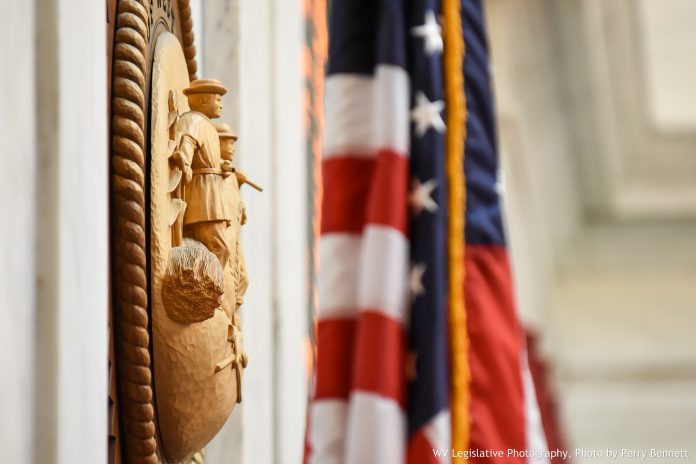DELEGATE DARYL COWLES
With more than 60,000 West Virginians unemployed and looking for work, House Republicans believe that job creation should be the top priority for the 2013 legislative session. In order to make West Virginia attractive for job creation, we must take bold steps to reform our tax structure and allow working West Virginians to keep more of their hard earned dollars.
Republicans in the House believe that a key to economic growth is putting more money into the private economy. This can be accomplished by allowing our citizens to keep more of their earnings which will help feed and cloth their families, buy homes, and provide their children with the opportunity to attend college. Many of the challenges facing West Virginia result from poverty and unemployment. There are many steps we can take to strengthen our economy while improving the quality of life for our citizens.
West Virginians are blessed with many strengths. One of the greatest of which is a strong work ethic. We must take every opportunity to make West Virginia a state where our people can put their talents to use in the workforce.
Our tax structure is our of sync with our surrounding states and is not conducive to attracting industry. West Virginia taxes equipment and inventory used in manufacturing and other economic activities. Many states with which we compete for jobs do not impose such an onerous tax. We must dedicate our efforts this session to eliminating this regressive job killing tax.
We must also work to help our citizens make ends meet. One such opportunity is increasing the Homestead Exemption which has not kept pace with rising property values. First granted in the 1980’s the Homestead Exemption was $20,000 and equal to a much larger percentage of a home’s value. Recalculating the exemption at today’s values would equal $40,000. Moreover, it would provide the relief originally intended for our older citizens.
SENATOR MITCH CARMICHAEL
Last week, I discussed the issue of public education in West Virginia. Since then, I have received hundreds of correspondences from constituents regarding the Governor’s proposals to reform our system of public education. Due to considerable interest in this matter, I thought you would appreciate some additional detail on the subject.
First, it should be noted that approximately 60 percent of the entire state budget is expended for K-12 public education. This amounts to over $2 billion in state spending. Education is the largest expenditure of general revenue state taxpayer funds.
A primary component of the targeted reforms is to provide each county with greater flexibility to design a school calendar that ideally suits the needs of each individual county. To summarize, the bill eliminates the state-mandated window of 43 consecutive weeks in which each county must situate the school calendar. Under current law, the state essentially mandates a lengthy summer break by defining the 43 week annual term of employment for school service personnel. The practical consequence is that each county Board of Education is encouraged to design the school calendar to accommodate this provision.
Under the Governor’s proposal, each county would have complete flexibility to craft a school calendar that suits their needs. The goal is to insure that each child receives the required 180 days of quality instructional time. Nationally, West Virginia ranks poorly in terms of average number of days our children attend school. The proposal to eliminate calendar restrictions from state code is a mechanism to provide each county with flexibility and freedom in designing the school year. It’s not a requirement that any county move to a year-round balanced school calendar.
The education of our children is among the highest priorities of state government. It’s our responsibility to provide a world-class education to the next generation. Today’s students must acquire the knowledge and skills to compete in a global economy that demands excellence. A recent education survey determined that of the world’s 43 largest economies, 33 provide over 180 days of instruction.
I contend that the children in West Virginia are as important as those in Korea or India. We do our nation, state, and each individual child a disservice when less than 180 full instructional days are provided to students. The general public, parents, and students should demand a minimum of 180 full instructional days in West Virginia. The taxpaying citizens are investing huge sums of money for an education system that’s not providing the necessary days of teaching our children. The Governor’s proposal does not force any county to change the school year. Instead, it simply provides each county with options.

